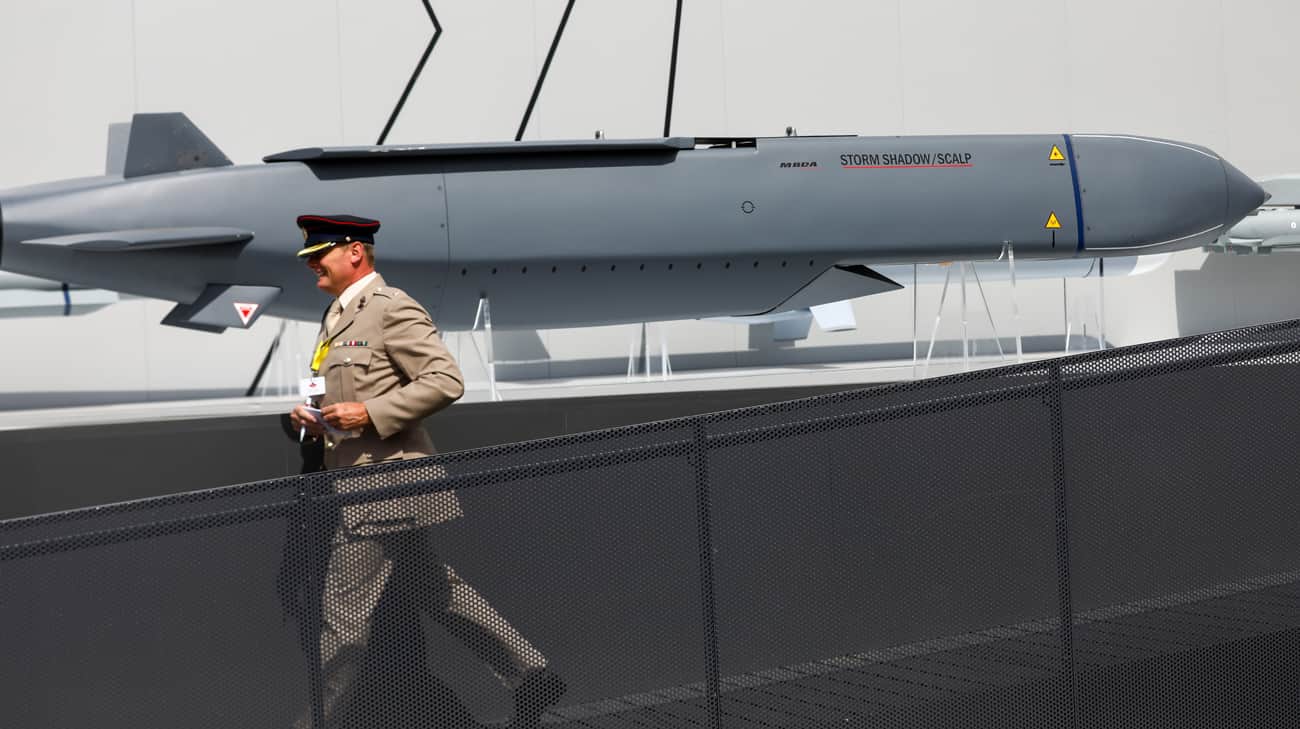In short
- New satellite images show a facility in North Korea that is said to be producing KN-23 missiles for Russia.
- Russia has fired 60 such missiles into Ukraine this year.
- The facility was expanded for increased production.
- North Korea is said to have sent 11,000 troops to Russia as well.
- The countries have an agreement on mutual military assistance.
The published images show a facility in North Korea’s second largest city, Hamhung, where KN-23 missiles are said to be manufactured for Russia.
The news agency writes Reuters and refers to researchers at the James Martin Center for Nonproliferation Studies (CNS) in the United States.
So far this year, Russia has fired 60 North Korean KN-23 missiles into Ukraine, according to a Ukrainian defense spokesman, CNN previously reported.
KN-23 missiles are designed to avoid missile defense by flying lower in lower trajectories, which also shortens flight time.
The plant in North Korea goes by the name of Ryongsong Machine Complex and it is not new. But according to CNS, it was significantly expanded to increase production—and the new building is reportedly 60 to 70 percent larger than before.
In addition to the missile support to Russia, North Korea is said to have also provided 11,000 troops to the Russians in the Kursk region. Earlier this year, Russia and North Korea are said to have signed an agreement requiring them to provide military assistance to each other “immediately” if the other country is attacked.
2024-11-26 07:12:00
#Satellite #images #reveal #North #Koreas #movements
How does the recent evidence of North Korean military aid to Russia, including potential troop deployments, alter the perceived threat North Korea poses to regional and global security?
## World Today News Exclusive: Decoding North Korea’s Role on the Global Stage
**Welcome to World Today News, where we delve into the stories shaping our world. Today, we examine the evolving relationship between North Korea and Russia, fueled by mounting evidence of military collaboration.**
**Joining us are two esteemed guests:**
* **Dr. Sophia Kim:** A leading expert on North Korean politics and international relations at the Institute for Korean Studies.
* **Colonel James Carter (Ret.):** A seasoned military strategist and former intelligence analyst with decades of experience in analyzing geopolitical threats.
**Part I: Unveiling the Evidence - Satellite Imagery & Military Aid**
**Interviewer:**
Dr. Kim, satellite imagery from the James Martin Center for Nonproliferation Studies appears to show a significant expansion of a missile production facility in North Korea. What do these findings tell us about the current state of North Korea’s missile program and its relationship with Russia?
**Dr. Kim:**
**Interviewer:**
Colonel Carter, these images show the Ryongsong Machine Complex supposedly producing KN-23 missiles, known for their low trajectory flight paths designed to evade missile defenses. How significant is this development militarily, particularly in the context of the war in Ukraine?
**Colonel Carter:**
**Part II: Dissecting the North Korea-Russia Agreement & Global Implications**
**Interviewer:**
Dr. Kim, North Korea’s reported deployment of 11,000 troops to support Russia in the Kursk region is a striking development. Can you shed light on the nature of the military assistance agreement between these two nations and what it signifies for the balance of power on the global stage?
**Dr. Kim:**
**Interviewer:**
Colonel Carter, what are the potential ramifications of this intensified military partnership between North Korea and Russia? How might it influence international alliances and potentially escalate tensions in other regions?
**Colonel Carter:**
**Part III: Exploring the Motivations Behind the Partnership**
**Interviewer:**
Dr. Kim, what are North Korea’s likely motivations for providing such extensive support to Russia? Is this primarily driven by political and ideological alignment, or are there more pragmatic strategic and economic considerations at play?
**Dr. Kim:**
**Interviewer:**
Colonel Carter, from a strategic perspective, what does Russia gain from this partnership with North Korea? Does it provide them with a significant advantage in the conflict with Ukraine, or are there deeper geopolitical objectives involved?
**Colonel Carter:**
**Part IV: Looking Ahead – The Future of North Korea’s Global Role**
**Interviewer:**
Dr. Kim, how might this deepening military collaboration between North Korea and Russia shape North Korea’s position on the world stage? Do you foresee this leading to a more assertive North Korea or potentially a more isolated one?
**Dr. Kim:**
**Interviewer:**
Colonel Carter, how do you see this evolving partnership impacting international security in the long term? Will it lead to greater instability or potentially create new pathways for international cooperation?
**Colonel Carter:**
**Interviewer:**
Thank you both for your insightful analysis. This complex and ever-evolving situation underscores the importance of continued dialog and understanding in navigating the challenges of our time.


